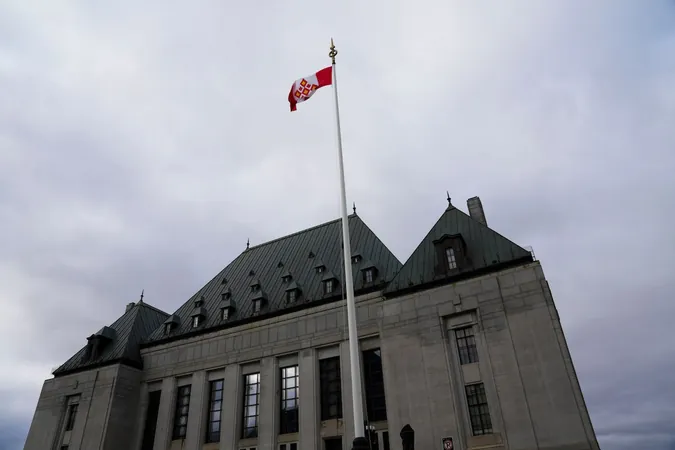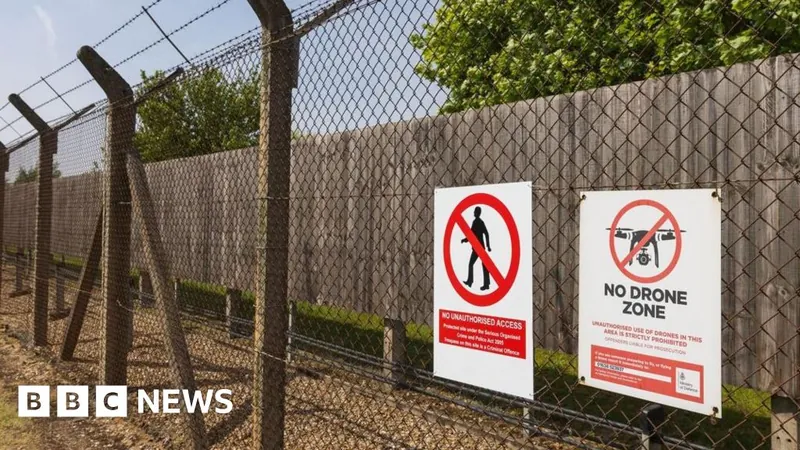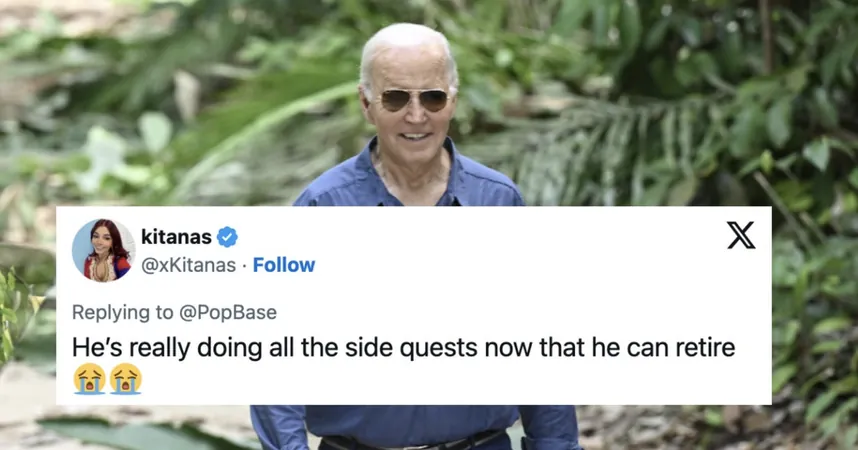
Groundbreaking Supreme Court Decision Forces Quebec to Boost Police Funding for First Nations
2024-11-27
Author: Benjamin
Historic Ruling by the Supreme Court of Canada
In a historic ruling, the Supreme Court of Canada has mandated that the province of Quebec must increase its funding for the Pekuakamiulnuatsh First Nation's police force after concluding that the provincial government acted dishonorably by refusing to negotiate funding terms. This landmark decision emphasizes the ongoing struggles faced by Indigenous communities in securing adequate police services.
Background of the Case
In December 2022, the Quebec Court of Appeal decided that Quebec had violated the crucial principle of good faith and had failed to uphold the honour of the Crown when it refused to adequately provide financial support for the Indigenous police service. The court found that the province owes nearly $1.6 million to the First Nation located in Mashteuiatsh, Quebec, to rectify years of insufficient funding.
Supreme Court Ruling Details
While the federal government agreed to pay its share of this total, Quebec appealed the decision to the Supreme Court. In an overwhelming 8-1 ruling, the Supreme Court determined that Quebec's negligence in considering the police force's financial needs was a breach of good faith, particularly given the persistent requests from the band council to renegotiate funding.
Financial Implications for Quebec
The outcome means Quebec is required to pay $767,745 as its share of the accumulated shortfall between 2013 and 2017. Ghislain Picard, the Assembly of First Nations regional chief for Quebec and Labrador, hailed the ruling as a critical step forward, stating that it sheds light on the broader problem of chronic underfunding of police services in Indigenous communities across Canada.
Indigenous Perspective on Police Services
“Indigenous communities grapple with dependence on two levels of government — provincial and federal — that share costs while imposing their own conditions,” Picard explained. “Ultimately, communities feel compelled to comply; otherwise, they risk losing vital services.”
Historical Context of Indigenous Policing
Historically, Indigenous residents have harbored skepticism towards non-Indigenous policing methods, which led to the establishment of the First Nations Policing Policy in 1991. This policy aimed at providing Indigenous communities with a policing service that is not only professional and effective but also culturally sensitive and accountable.
Ongoing Negotiations and Agreements
Quebec and the Pekuakamiulnuatsh Takuhikan, the local band council, have engaged in multiple agreements over the years to facilitate police services for the community, but the province's refusal to reconsider its financial commitments during these renewals was at the heart of the Supreme Court’s decision. The justices asserted that Quebec's conduct fell short of the honourable engagement expected in such negotiations.
Justice Comments on Funding Expectations
Justice Nicholas Kasirer emphasized that while Pekuakamiulnuatsh Takuhikan wasn't entitled to a specific funding level, it reasonably expected Quebec to actively participate in discussions regarding funding contributions. The court highlighted that the absence of genuine negotiation left the community in an untenable position, where it had to either deplete its resources to maintain the police service or risk dismantling it altogether, which would reverse the advancements in self-governance achieved by the community.
Broader Implications and Future Directions
As the ruling reverberates across the nation, it reflects broader issues surrounding the treatment of Indigenous communities and the persistent challenges they face in attaining fair funding for essential services. The Supreme Court’s conclusion serves as a potent reminder that the obligation to respect the honour of the Crown necessitates meaningful dialogue and engagement with Indigenous Peoples, an ongoing journey toward reconciliation that Canada must prioritize.









 Brasil (PT)
Brasil (PT)
 Canada (EN)
Canada (EN)
 Chile (ES)
Chile (ES)
 España (ES)
España (ES)
 France (FR)
France (FR)
 Hong Kong (EN)
Hong Kong (EN)
 Italia (IT)
Italia (IT)
 日本 (JA)
日本 (JA)
 Magyarország (HU)
Magyarország (HU)
 Norge (NO)
Norge (NO)
 Polska (PL)
Polska (PL)
 Schweiz (DE)
Schweiz (DE)
 Singapore (EN)
Singapore (EN)
 Sverige (SV)
Sverige (SV)
 Suomi (FI)
Suomi (FI)
 Türkiye (TR)
Türkiye (TR)